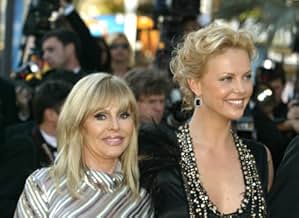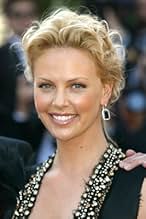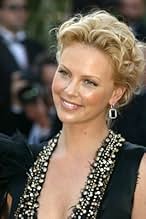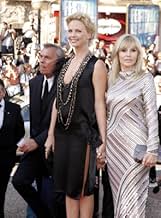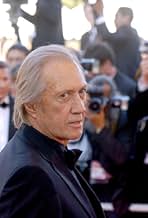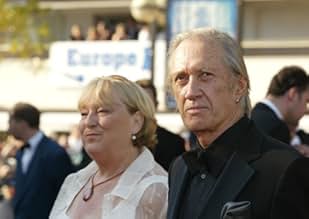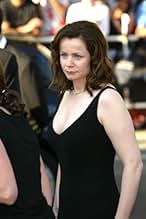IMDb RATING
6.9/10
16K
YOUR RATING
The feature adaptation of Roger Lewis' book about the actor best remembered as Inspector Clouseau in the Pink Panther movies.The feature adaptation of Roger Lewis' book about the actor best remembered as Inspector Clouseau in the Pink Panther movies.The feature adaptation of Roger Lewis' book about the actor best remembered as Inspector Clouseau in the Pink Panther movies.
- Director
- Writers
- Stars
- Won 9 Primetime Emmys
- 31 wins & 35 nominations total
Edward Tudor-Pole
- Spike Milligan
- (as Edward Tudor Pole)
- Director
- Writers
- All cast & crew
- Production, box office & more at IMDbPro
Featured reviews
Let there be no doubt that Peter Sellers would be an enormously difficult part to play. He has to be one of the few actors in film history who is more complex than the characters he played. (unless one considers actors such as Paul Walker... let me rephrase that, one of the few TALENTED actors) And it would be hard to imagine the man who is still infamously remembered as Inspector Clouseau from the Pink Panther series being played in as flawless a manor as by Geoffrey Rush here. He wasn't the most obvious choice to play Peter Sellers, but he proved to be the wisest one. The man deserves countless praises, not only for playing Sellers himself to perfection, but also for flawlessly re-creating pretty much every film and radio role Sellers ever played, from Dr. Strangelove to Chance the gardener to Clouseau himself. (beginning in a hilarious sequence on an airplane when Sellers hassles an airline stewardess in Clouseau character) But it doesn't stop there - all throughout his life (or at least so shown here) Sellers struggled with the notion that despite the rampant personalities of his screen personas, Peter the man never really had much of a personality himself. To show this, Sellers reenacts sequences of his real life with himself playing different characters. It is in these delusional sequences that Rush shows his true mastery - he doesn't give us "Geoffrey Rush as Peter Sellers' mother", he gives us "Geoffrey Rush as Peter Sellers as Peter Sellers' mother". Words can't describe the amount of recognition Geoffrey Rush deserves, and a solitary Golden Globe simply doesn't do him justice.
Despite the fact that virtually the whole show centers around Rush and his masterful performance, he is backed up by a strong supporting cast and crew. Director Stephen Hopkins was also an odd choice for the project, given his past credentials ("Lost in Space"? "Predator 2"?)but he proves to have the cheeky sense of humour the film needed to be taken seriously, starting off with a surreal 60's style animation sequence with Sellers showing clips from his own life. And it's nice to see some higher profile actors taking the back seat here, such as Charlize Theron, delightfully ditzy and yet not quite a parody as Sellers' airheaded second wife Britt Eckland. Emily Watson brings class and understated strength to her role as Ann, Sellers' first wife, and, as we are led to believe, the only woman he ever truly loved. (despite the fact he left her and their children to pursue a relationship with Sophia Loren which never happened) Stanley Tucci plays Stanley Kubrick in a brief yet important role during the filming of Dr. Strangelove - his eyes showed what his words could not: how irresponsible and hazardous to he production he perceived Sellers to be. Miriam Margoyles, better known as Professor Sprout in the Harry Potter series is formidable as Peter's domineering, manipulative mother, portrayed as the main reason for Sellers' fractured state of reality. And John Lithgow is an excellent Blake Edwards, blending his eternal optimism and energy with a sense of self pride, which he is forced to swallow, asking Sellers to return for numerous Pink Panther sequels. Lithgow, with his obnoxious laugh, is a constant high point throughout the film.
Yet, after the viewing is finished, the watcher feels strangely empty. Sure it looked classy, and it felt classy to watch, so why shouldn't it be classified as a great movie? Perhaps it's because 'The Life and Death of Peter Sellers' feels more like a series of snapshots, and not like a proper biography. We are presented with WHAT Sellers did in his lifetime, but never really shown WHY. There's an irritating lack of depth, which the viewer fails to notice during the movie, so captivated are we with Rush's wonderful acting. But when we reflect on the film afterwards, we realize that we still don't really know who Peter Sellers is. We know what he did, but not why he did it. This may be an intentional decision on Hopkins' part, because, as we are led to believe, Sellers didn't really understand himself that well. So no one really knew who Peter Sellers was... not even himself. And we should be content with that.
-8/10
Despite the fact that virtually the whole show centers around Rush and his masterful performance, he is backed up by a strong supporting cast and crew. Director Stephen Hopkins was also an odd choice for the project, given his past credentials ("Lost in Space"? "Predator 2"?)but he proves to have the cheeky sense of humour the film needed to be taken seriously, starting off with a surreal 60's style animation sequence with Sellers showing clips from his own life. And it's nice to see some higher profile actors taking the back seat here, such as Charlize Theron, delightfully ditzy and yet not quite a parody as Sellers' airheaded second wife Britt Eckland. Emily Watson brings class and understated strength to her role as Ann, Sellers' first wife, and, as we are led to believe, the only woman he ever truly loved. (despite the fact he left her and their children to pursue a relationship with Sophia Loren which never happened) Stanley Tucci plays Stanley Kubrick in a brief yet important role during the filming of Dr. Strangelove - his eyes showed what his words could not: how irresponsible and hazardous to he production he perceived Sellers to be. Miriam Margoyles, better known as Professor Sprout in the Harry Potter series is formidable as Peter's domineering, manipulative mother, portrayed as the main reason for Sellers' fractured state of reality. And John Lithgow is an excellent Blake Edwards, blending his eternal optimism and energy with a sense of self pride, which he is forced to swallow, asking Sellers to return for numerous Pink Panther sequels. Lithgow, with his obnoxious laugh, is a constant high point throughout the film.
Yet, after the viewing is finished, the watcher feels strangely empty. Sure it looked classy, and it felt classy to watch, so why shouldn't it be classified as a great movie? Perhaps it's because 'The Life and Death of Peter Sellers' feels more like a series of snapshots, and not like a proper biography. We are presented with WHAT Sellers did in his lifetime, but never really shown WHY. There's an irritating lack of depth, which the viewer fails to notice during the movie, so captivated are we with Rush's wonderful acting. But when we reflect on the film afterwards, we realize that we still don't really know who Peter Sellers is. We know what he did, but not why he did it. This may be an intentional decision on Hopkins' part, because, as we are led to believe, Sellers didn't really understand himself that well. So no one really knew who Peter Sellers was... not even himself. And we should be content with that.
-8/10
The story begins with the Goons and ends just after his role in the movie, Being There, thirty years later. A lot of the film features recreations of famous moments in Seller's acting life, such as appearing on "The Goons" or in "The Pink Panther". There are some particularly hilarious insights into his development of the "Inspector Clouseau" character, including an explanation of why he ended up hating the character so much.
As such, it really only touches the surface of his life story, but it does give you an intense understanding of the character. A character which, in the style of Greek tragedy, had a major flaw. For me, the flaw was Seller's total lack of confidence, perhaps due to his appearance, which he appears constantly to have overcompensated for.
Curiously enough, since Sellers is shown portraying great emotions, I was never actually moved myself, except perhaps for the occasion when he is violent towards Britt Ekland and in a particularly galling moment with his children.
The movie reaches its crescendo with Sellers' performance in "Being There" in which it's suggested the reason why Sellers so wanted to play the man without a personality was because he, himself, had no personality.
A few people at my workplace commented they thought the movie was far too stylized. Although I can see their point, and I agree I was never really touched by the movie, I thought Geoffrey Rush's performance more than made up for this. Rush plays not only Sellers, but several other characters in a Sellers-like "Dr Strangelove" kind of way, and achieves all of it with gusto. I also really enjoyed the performance of Miriam Margoyles as Sellers' mother, Peg, with whom he seems to have enjoyed an intense, almost Oedipal relationship.
I thought Geoffrey Rush's performance was fantastic and makes the movie totally worth watching.
As such, it really only touches the surface of his life story, but it does give you an intense understanding of the character. A character which, in the style of Greek tragedy, had a major flaw. For me, the flaw was Seller's total lack of confidence, perhaps due to his appearance, which he appears constantly to have overcompensated for.
Curiously enough, since Sellers is shown portraying great emotions, I was never actually moved myself, except perhaps for the occasion when he is violent towards Britt Ekland and in a particularly galling moment with his children.
The movie reaches its crescendo with Sellers' performance in "Being There" in which it's suggested the reason why Sellers so wanted to play the man without a personality was because he, himself, had no personality.
A few people at my workplace commented they thought the movie was far too stylized. Although I can see their point, and I agree I was never really touched by the movie, I thought Geoffrey Rush's performance more than made up for this. Rush plays not only Sellers, but several other characters in a Sellers-like "Dr Strangelove" kind of way, and achieves all of it with gusto. I also really enjoyed the performance of Miriam Margoyles as Sellers' mother, Peg, with whom he seems to have enjoyed an intense, almost Oedipal relationship.
I thought Geoffrey Rush's performance was fantastic and makes the movie totally worth watching.
Well, how do you rate a biographical movie? I am really not a Peter Sellers buf so I couldn't tell how accurate the movie was. Knowing how these kind of movies are made I am sure it is full of little overdramatisations :) The only measure of quality is the performance of the lead actor and I think Geoffrey Rush did a fabulous job. He talked, looked and moved like Peter Sellers.
However, I couldn't watch more than 30 minutes of the film. The movie portrays a horrible little man, egocentric to the point of disbelief, abusing his wives and children and having no real remorse. While the movie is well done and the acting superb, I couldn't stand the idea of another hour and a half of watching the same type of behavior, so I missed on John Lithgow, Stanley Tucci and other great actors in the cast.
However, I couldn't watch more than 30 minutes of the film. The movie portrays a horrible little man, egocentric to the point of disbelief, abusing his wives and children and having no real remorse. While the movie is well done and the acting superb, I couldn't stand the idea of another hour and a half of watching the same type of behavior, so I missed on John Lithgow, Stanley Tucci and other great actors in the cast.
For anyone interested in Peter Sellers life and work, this film is certainly worth watching, if for nothing more than the incredible re-creations of scenes from Sellers' films. Geoffrey Rush is transformed into a nearly dead-ringer for Sellers, through the magic of make up and prosthetics. But as talented as he may be, no one can recreate the subtleties of the master, especially the use of his eyes
Sellers' eyes were by far the funniest aspect of his physicality: narrowing, widening, always moving, punctuating his actions and illuminating the emotions within, even as part of the most farcical of performances.
Such a rich and varied life would lend itself to a miniseries but of course it would be a copout to suggest that at least a glimmer into the life of a man couldn't be done successfully within two hours. What this movie drove home for me was how terribly short the human lifespan really is, and how little time we have to truly discover ourselves and come to terms with our own frailties. I felt that the basis of Sellers unhappiness, which manifested itself in inexcusable cruelty to his family, friends and co-workers, was a direct result of his childhood, which was never really addressed in this film. It was, in his own words to Michael Parkinson, not a very happy time in his life. Growing up in the theater circuit, being in the company of boozy and abusive 'theatricals', and being raised by a domineering mother and what I gather was a rather passive and emotionally unavailable father set the stage for a man who obviously felt deprived of the things that give us self-esteem and confidence. No one in his adult life could give him the things he should've received from his parents as a child, and he took out that frustration on those closest to him.
Also interesting were the glimpses of his fellow Goons (Spike Milligan and Harry Secombe) at various chapters in his life-in the church at his mother's funeral, in the crowd at the premiere of 'The Pink Panther'. They represented what he considered the happiest time of his life and they were a constant presence, flitting in an out of his life at key moments in the film, like the ghosts of Christmas Past.
Interesting also in how one decision, in this case his delusional infatuation with Sophia Loren, set in motion a series of dovetailing mistakes in his life, which took him further and further away from a relatively healthy existence. He had twenty years more to live and it turned out to be not enough time to turn things around.
Such a rich and varied life would lend itself to a miniseries but of course it would be a copout to suggest that at least a glimmer into the life of a man couldn't be done successfully within two hours. What this movie drove home for me was how terribly short the human lifespan really is, and how little time we have to truly discover ourselves and come to terms with our own frailties. I felt that the basis of Sellers unhappiness, which manifested itself in inexcusable cruelty to his family, friends and co-workers, was a direct result of his childhood, which was never really addressed in this film. It was, in his own words to Michael Parkinson, not a very happy time in his life. Growing up in the theater circuit, being in the company of boozy and abusive 'theatricals', and being raised by a domineering mother and what I gather was a rather passive and emotionally unavailable father set the stage for a man who obviously felt deprived of the things that give us self-esteem and confidence. No one in his adult life could give him the things he should've received from his parents as a child, and he took out that frustration on those closest to him.
Also interesting were the glimpses of his fellow Goons (Spike Milligan and Harry Secombe) at various chapters in his life-in the church at his mother's funeral, in the crowd at the premiere of 'The Pink Panther'. They represented what he considered the happiest time of his life and they were a constant presence, flitting in an out of his life at key moments in the film, like the ghosts of Christmas Past.
Interesting also in how one decision, in this case his delusional infatuation with Sophia Loren, set in motion a series of dovetailing mistakes in his life, which took him further and further away from a relatively healthy existence. He had twenty years more to live and it turned out to be not enough time to turn things around.
I never thought I'd find myself feeling sorry for Britt Ekland: this film of Peter Sellers' life and career achieved that. One must assume that many of the details are based in truth - his behaviour to his children in particular was awful.
There is no doubt that Sellers was an amazing talent, and troubled as so many are (Tony Hancock, for instance) - the toll that took on those closest to him must have been great.
But to the film: it's worth seeing for the extraordinary performance from Geoffrey Rush, uncannily portraying Sellers. There is fine support, in particular from John Lithgow as Blake Edwards, Miriam Margoyles as Sellers' mother, and Charlize Theron's Ekland.
There is no doubt that Sellers was an amazing talent, and troubled as so many are (Tony Hancock, for instance) - the toll that took on those closest to him must have been great.
But to the film: it's worth seeing for the extraordinary performance from Geoffrey Rush, uncannily portraying Sellers. There is fine support, in particular from John Lithgow as Blake Edwards, Miriam Margoyles as Sellers' mother, and Charlize Theron's Ekland.
Did you know
- TriviaPeter Sellers did not give a pony to his son Michael as shown in the film. He gave it to his younger daughter by Britt Ekland several years later. The change was made in order to compress events for dramatic purposes. According to the screenwriter, the horse disappeared after a couple of weeks, and when his daughter wanted to know where it was, he replied that he had given it to Princess Margaret.
- GoofsA cinema marquee advertises Ghost in the Noonday Sun (1974) despite the fact that this film was shelved until after Sellers' death and never received a theatrical release. Similarly, Le blockhaus (1973) didn't have a U.K. theatrical release but is shown playing on a London marquee.
- Quotes
[At Peter's wedding to the Swedish starlet Britt Ekland]
Peg Sellers: You've only known that bleedin' Nazi for 3 weeks.
Peter Sellers: Peg, I couldn't be happier.
Peg Sellers: Why are you making the same mistake all over again?
Peter Sellers: Because, my love, they won't let me marry you.
- Crazy creditsThe frame freezes and the end credits start. After some informations about the last part of life of Peter Sellers have scrolled up the screen, the credits stop and the camera suddenly pulls back, revealing Geoffrey Rush watching the end titles sitting in front of a monitor on a studio set. He turns toward the camera, waves, gets up, leaves the set and walks to a trailer. The camera tries to follow him inside, but he turns and says "You can't come in here". The door closes, and the camera zooms in on the sign with the name "Peter Sellers". The film again fades to black and we see the rest of the end credits.
- Alternate versionsThe BBC broadcast a version with some scenes rearranged, some scenes shortened and a few other edits:
- The montage of Peter Sellers' earlier films is cut together with the scene where he moves into a big new house with Anne and the children. Also the song 'I Haven't Told Her, She Hasn't Told Me' sung by Peter is played instead of Frank Sinatra's 'Fly Me to the Moon'.
- The first Maurice Woodruff scene and the car showroom scene are moved ahead to after Peter's father's death scene, swapping places with the scene where he phones Harry Secombe asking if he wants to come over for a beer. The car showroom scene also replaces the Shirley Bassey song 'Big Spender' with incidental music composed for the film.
- The first Maurice Woodruff scene begins with a shot of Peter smoking a cigarette in the waiting room before cutting to a shot of Woodruff's book, which is where this scene begins in the original version.
- The Harry Secombe phone call scene is shortened, cutting out the bit where Peter tells his son to go to his room.
- A shot of Peter as Dr. Strangelove saying "Boom" is added after the Dr. Strangelove filming scenes.
- Peter and Britt Ekland's wedding reception scene is shortened slightly, the shots of the children on the carousel are cut out.
- The scene where Peter drives Britt to the hospital to give birth is shortened, cutting out footage of the car going past a church, pulling out in front of another car and Peter telling Britt to keep breathing.
- The very brief scene of Peter seeing a plastic surgeon followed by shots of him in a makeup chair and taking pills is cut out.
- The scene where Maurice Woodruff tries to get Peter to do another Pink Panther film is shortened, the bit where he channels Peter's mother and tells him to do the film is cut out. Also a different take is used when Maurice gets out the film script, instead of saying "Are you absolutely sure about that?", he says "Are you sure about that?".
- The scene of Peter in his trailer dressed as the old salty sea dog is moved back to in between the scenes of him agreeing to make The Pink Panther Strikes Again and the film's premiere, making it look as if this character is part of that film when actually he appears in Revenge of the Pink Panther. In the original version this scene takes place later on, after a shot of Peter picking up a Revenge of the Pink Panther script. Whereas this version changes this shot to show a Being There script.
- The scene of Peter in character as Blake Edwards is shortened. The line at the end of the scene "What did he do after me? The only thing he never gave up on" is cut out.
- The montage of Peter doing character preparation for Being There and burning his old movie stuff is arranged differently. The overlaid shots of him doing The Goon Show and playing Strangelove, Clouseau are removed, although a shot of him burning a photo of President Merkin Muffley and a shot of the Being There novel in his pocket are added.
- In the first shot of Blake Edwards waiting for Peter at the restaurant, instead of starting with a close up of the script for The Romance of the Pink Panther and cutting just before a waiter pours water into a glass, it starts with the water pouring into the glass, using a different part of this same take.
- At the ending, when after the closing text it zooms out to show Peter watching it on a monitor and getting up to go to his trailer after which the end credits roll, this version inserts after the text another shot of Peter standing in the snow, then the cast list rolls before the zoom out to Peter watching it on a monitor. Also in this version The Kinks' song 'A Well Respected Man' starts playing as Peter gets up to go to his trailer, in the original version incidental music is played here instead and 'A Well Respected Man' doesn't start playing until the credits roll.
- ConnectionsFeatured in At the Movies: Episode #1.9 (2004)
- SoundtracksWhat's New Pussycat
Written by Burt Bacharach and Hal David
Performed by Tom Jones
Courtesy of The Decca Music Group Ltd.
Licensed by kind permission from the Universal Film & TV Licensing Division
- How long is The Life and Death of Peter Sellers?Powered by Alexa
Details
- Release date
- Countries of origin
- Official sites
- Language
- Also known as
- La vie et la mort de Peter Sellers
- Filming locations
- 33 Portland Place, Marylebone, London, England, UK(Peter Sellers' London flat)
- Production companies
- See more company credits at IMDbPro
Box office
- Gross worldwide
- $1,789,336
- Runtime2 hours 2 minutes
- Color
- Sound mix
- Aspect ratio
- 1.85 : 1
Contribute to this page
Suggest an edit or add missing content



